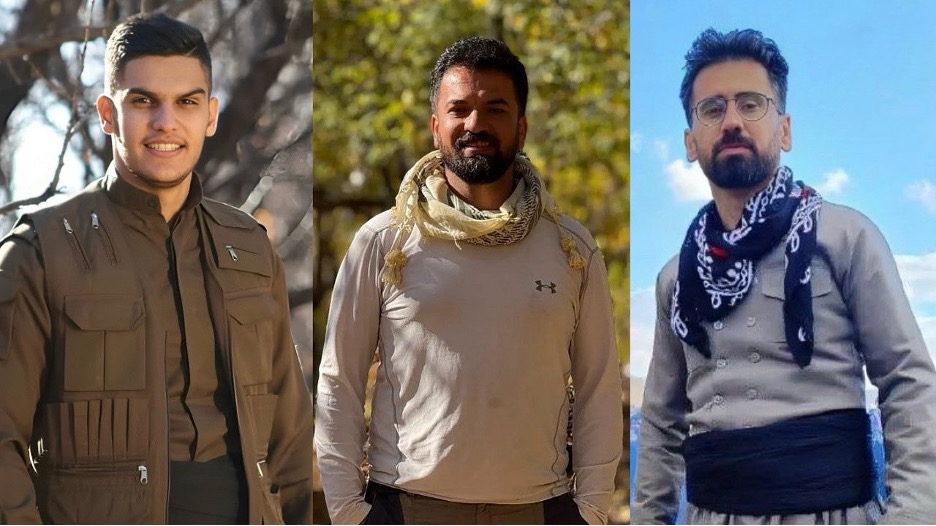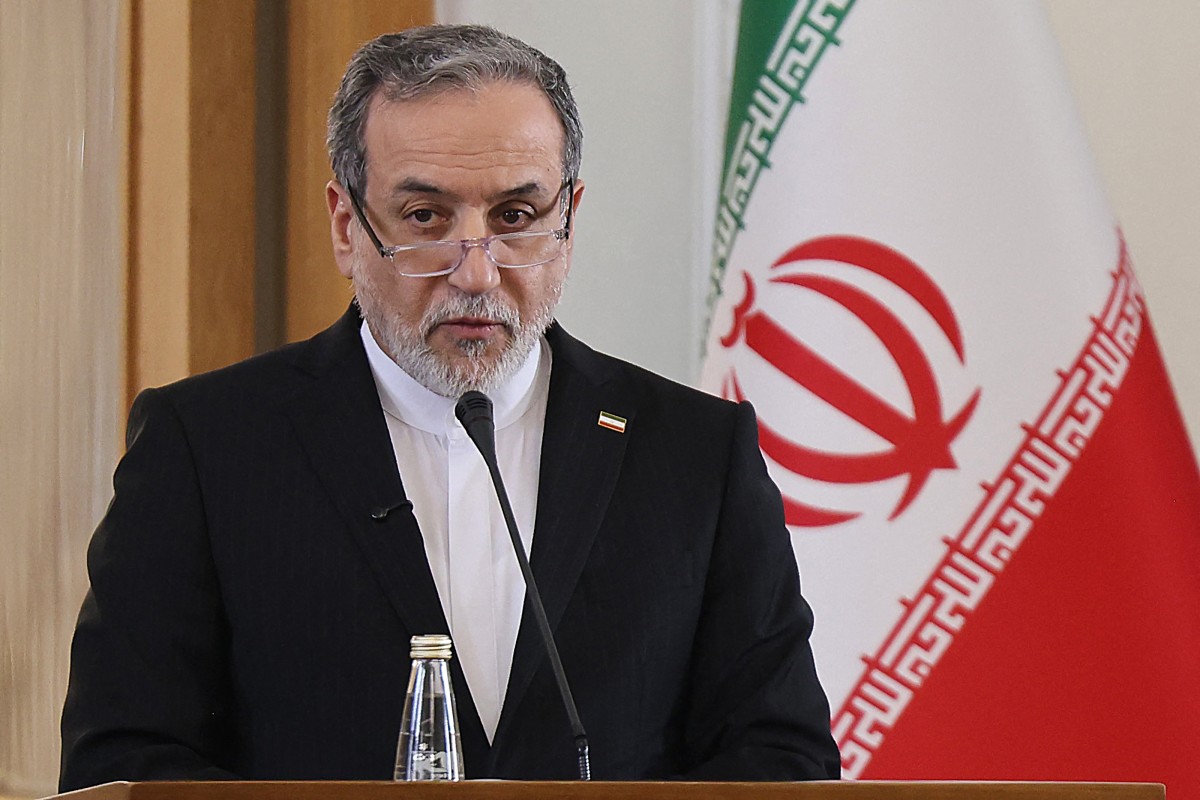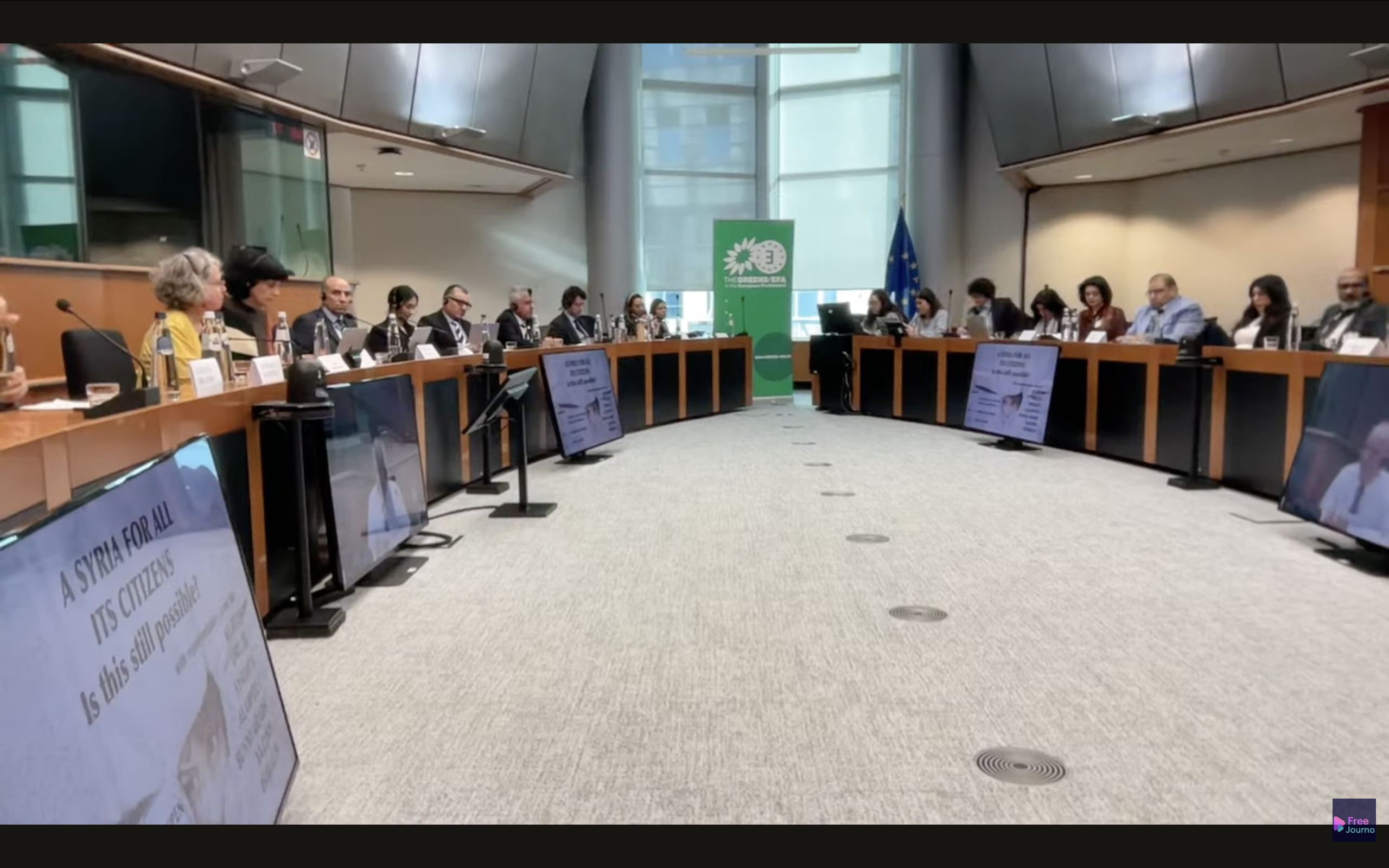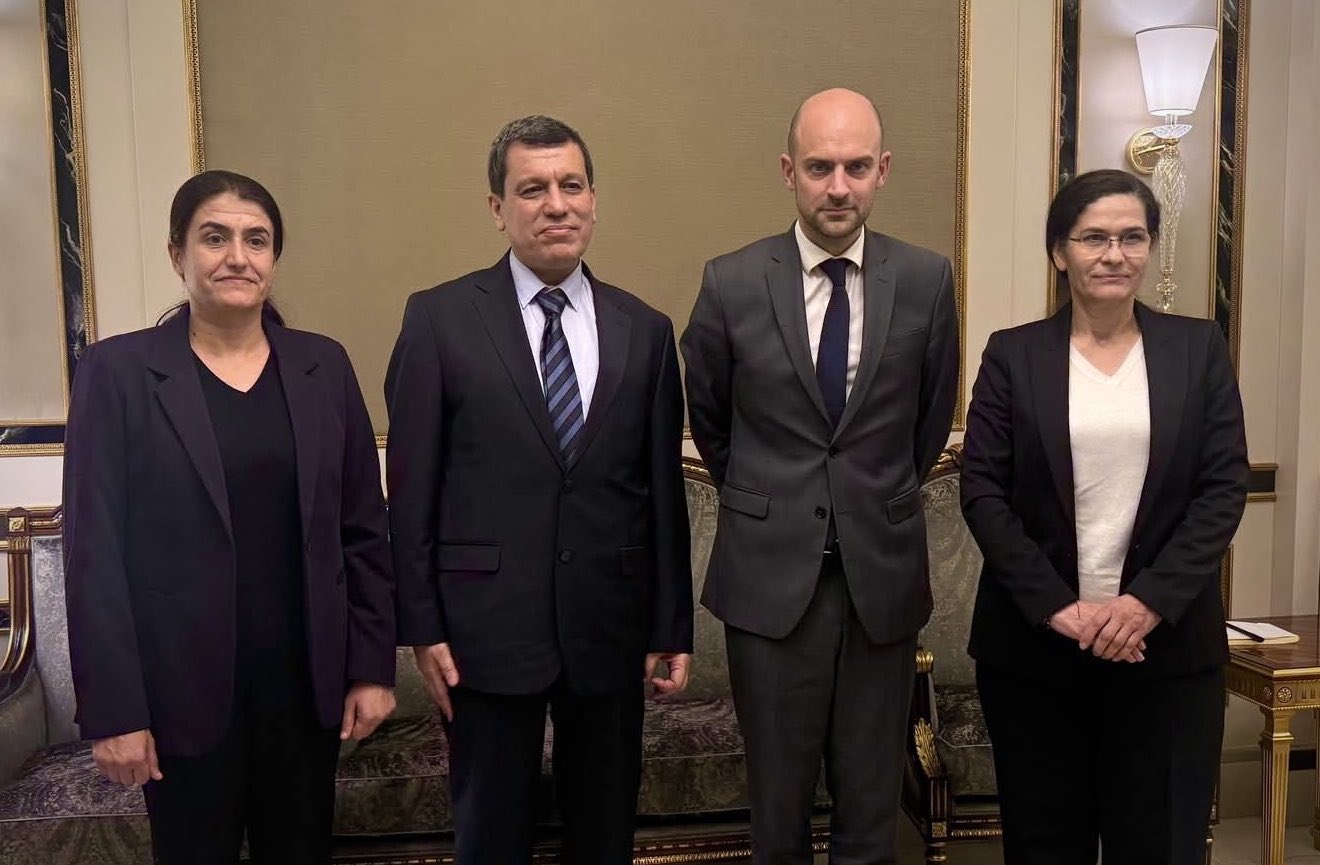Deaths of Environmental Activists in Kurdistan: Negligence or Structural Violence?

From the left: Chiako Yousefi-Nejad, Hamid Moradi, Babak Hedayi
Three environmental activists recently perished in Iranian Kurdistan’s Abidar mountains while fighting wildfires with bare hands. Their funerals drew thousands of protesters, transforming grief into protest. To many Kurds, their deaths are not accidental. Instead, they symbolize the cost of resistance in a securitized, neglected homeland.
On July 23, 2025, three veteran environmental activists in Sine (Sanandaj), Hamid Moradi, Babak Hedayi, and Chiako Yousefi-Nejad, lost their lives while attempting to contain a wildfire in the nearby Abidar (Awiyar) mountains. Three of their companions were injured and remain under treatment. In the aftermath of this incident, thousands of people from Sine and other parts of eastern Kurdistan (Rojhelat) joined the funeral processions. These ceremonies quickly turned into political protests with chants such as “Martyrs never die” and “Courageous hero, martyr of Kurdistan.” Weeks later, on September 5, another activist from Merîwan, 18-year-old Rebin Gorani, died while battling wildfires in the surrounding forests after inhaling toxic fumes. His funeral, too, drew a massive crowd.
Many environmental activists in Kurdistan argue that these deaths were not mere accidents but rather violent symptoms of a complex system in which struggles around environment, identity, and civic political activism are inseparably intertwined
In an attempt to calm public anger, Iranian government officials declared two days of public mourning in Kurdistan province. During visits to the families of what they termed “environmental martyrs,” the authorities promised to investigate the circumstances of the incidents. However, many environmental activists in Kurdistan argue that these deaths were not mere accidents but rather violent symptoms of a complex system in which struggles around environment, identity, and civic political activism are inseparably intertwined. Even if not directly linked to political conflict, environmental activism in Kurdistan is perceived by Tehran as a threat to state authority.
In many ways, protecting the environment in Kurdistan is not merely an ecological duty. It is an inseparable part of social and political resistance against systemic inequality and injustice.
Historical and Structural Context of Repression
The 1980s in Iranian Kurdistan were marked by widespread repression of collective organization. War, forced displacement, executions, and structural poverty devastated civil society, leaving almost no space for independent activity. Even environmental initiatives were treated as potential threats to state security.
With the advent of the reformist government in 1997, limited opportunities emerged for environmental and cultural initiatives; the reformists wanted to open up to society and the international community. Although their activities remained under constant surveillance by security agencies, activists were able to organize themselves and their communities.
Allan Hassnian, lecturer in Middle Eastern Studies at the University of Exeter, told The Amargi: “The Islamic Republic’s sensitivity to any social, cultural, or political activity by Kurds stems from its security mindset in Kurdistan.Tehran tends to interpret every form of collective action in the region as the extended and hidden hand of the Kurdish movement and political parties.”
Speaking to The Amargi on condition of anonymity for security reasons, one environmental activist from Kurdistan noted that the state’s securitized approach not only imposes direct restrictions on activists but also discourages public participation in environmental protection. He added, “As a result of this policy, people become indifferent to the importance of protecting natural resources. This ultimately creates space for destructive exploitation by institutions and individuals with no regard for nature.”
Nature as a Site of Resistance and Collective Identity
Ecological activism in Kurdistan goes far beyond the protection of the natural environment.
Ecological activism in Kurdistan goes far beyond the protection of the natural environment. In many ways, as Iran has completely restricted civil society and any political activism, especially in the Kurdish region, environmental activism is one of the mechanisms of a broader grassroots effort to defend communal ties, strengthen collective action, and resist centralizing state policies. The Iranian state’s hostile policies towards minoritized communities sustain a more general exploitative approach that treats nature as a resource for extraction. Moreover, Kurdish communities often root their identity in belonging to certain territories—the surrounding nature is often a major reference point for culture and spirituality. The destruction of nature, which also robs rural people off their livelihoods and means of subsistence, is a driver of forced displacement and poverty.
Dr. Elham Hoominfar, assistant professor in the Global Health Studies program at Northwestern University, emphasizes that environmental activists in Kurdistan are not only defenders of forests and natural resources but also rebuilders of social ties and local democratic practices. She notes: “The security repression they experience is a reaction to the threat that authorities perceive in collective action and local democratic participation.” In this context, environmental activism in Kurdistan represents both the defense of nature and the struggle against the suppression of collective identity.
A Repeated Pattern of Neglect and Inequality
This policy of deliberate neglect is directly connected to state efforts to control the population and suppress local identity.
Activists working in harsh conditions and under constant pressure are forced to protect nature, and often their own lives, with minimal resources and without proper training. The Abidar tragedy is only the most recent example of a recurring pattern. Similar incidents in the forests of Merîwan and Marekhil near Paveh, also claimed the lives of activists who lacked adequate resources and training. Such events reflect a broader state policy: the limitation of access to resources and equipment for the protection of nature exposes activists to hazardous conditions. The absence of firefighting equipment, specialized training, and logistical support puts activists in dangerous situations where even the smallest mistake can be fatal.
This policy of deliberate neglect is directly connected to state efforts to control the population and suppress local identity. The absence of infrastructure and logistical support for environmental protection in a securitized region where state presence is otherwise highly asserted, forces activists to defend their communities and natural resources with empty hands, . In addition to neglect, environmental activists also face the criminalization of their work. This pattern reveals how ecological struggles in this region are inseparably linked to social and political resistance.
Dr Hoominfar argues that the deaths of environmental activists should be considered crimes and investigated under the framework of environmental criminal law. She explains that these tragedies are not merely accidental deaths but could be seen as a type of involuntary manslaughter: “Officials responsible for protecting natural resources and ensuring public safety have, through indifference, enabled the destruction of the environment. By dismantling protective infrastructure and denying equipment, they force people to defend their land and lives with bare hands, leading to the deaths of the most committed members of society—environmental activists.”
Such perspectives highlight that the deaths of activists are not isolated incidents but the outcomes of a racialized system of control. Repressive securitization, resource extraction, and the suppression of collective identity continue to expose activists to constant danger, tying the defense of nature directly to the struggle for justice and freedom.
Ammar Goli
Ammar Goli is an investigative reporter whose work focuses on the relationships between mafia groups and totalitarian governments, and on the Kurdish issue in the Middle East. He has contributed to various media outlets, including BBC Farsi, Iran International, and Radio Ferda, in Persian, Kurdish, and German, drawing on his deep understanding of the political and social dynamics of the region. At The Amargi, he writes specifically about East Kurdistan and Iran, offering valuable insights and analysis of current events.



